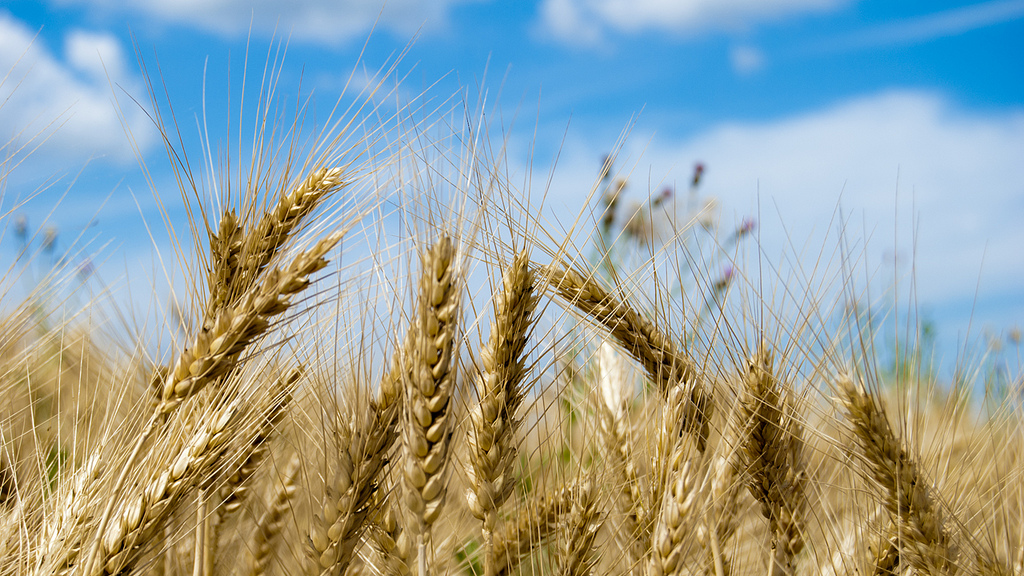
Wheat experiment renews Egypt's hope to achieve food self-sufficiency
Egyptian scientists recently claimed they have successfully applied a new method to bring an extra wheat harvest in winter, raising new hope to end the country's wheat shortage and achieve food self-sufficiency.
"Planting wheat twice a year will double the production, save water, and open the door to achieve food self-sufficiency in Egypt," Hisahm Mustafa, chairman of the National Center for Water Researches (NCWR), told Xinhua in a recent interview.
Egyptian farmers originally grow wheat once a year in November and harvest it in May. The whole process takes around six months depending on the nature of the soil, water availability and temperature.
The technique to achieve two wheat harvests a year is "vernalization," which means freezing the seeds during germination to accelerate the flowering process, Mustafa said.
[Full article here | Photo by Sleepy Claus]







